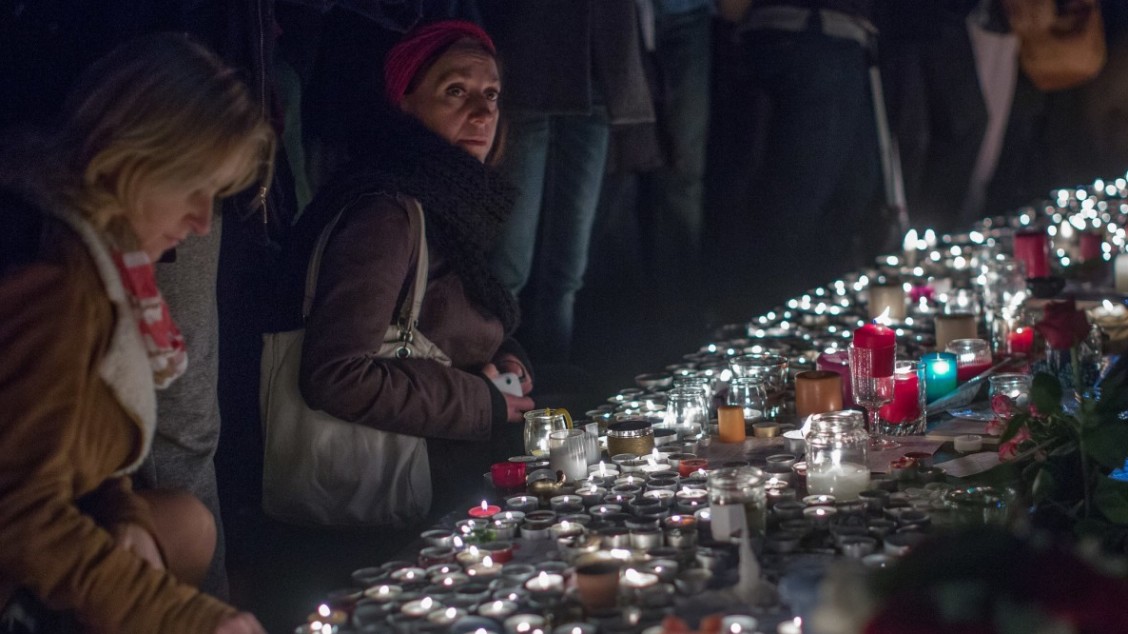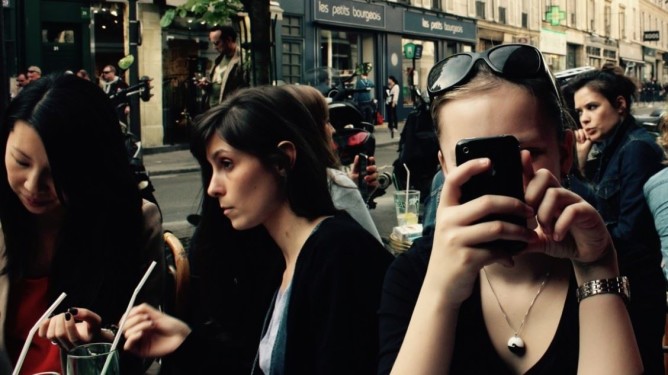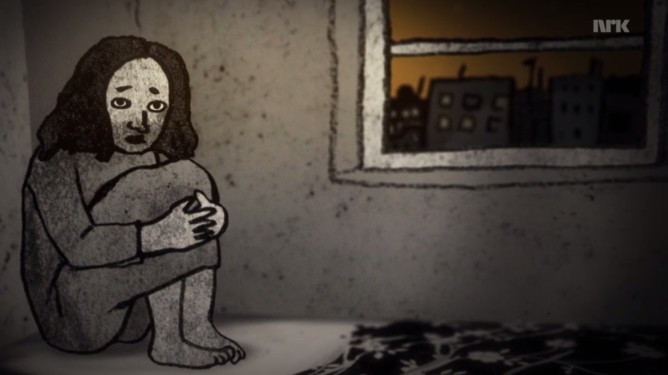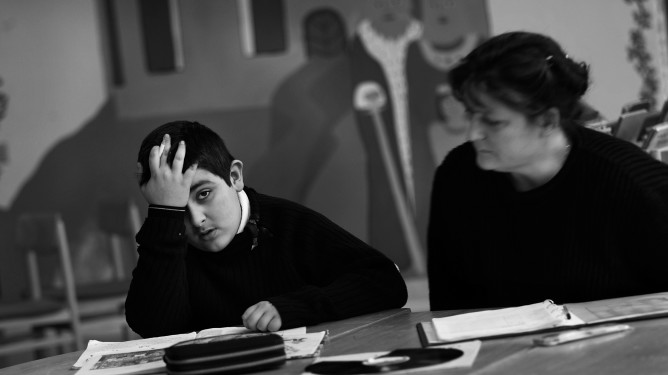A French Perspective on the Terrorist Attacks.
France has been hit by terrorist attacks for the second time this year. The first one occurred on January 7th and 9th, when two different teams slaughtered 17 people, journalists and cartoonists of the famous satirical newspaper Charlie Hebdo, along with policemen, and Jewish citizens in the Hyper Kosher shop in Paris. Less than a year after these terrific attacks, terrorism striked France again, just a week earlier, on November 13th. We are mourning, for the second time in a few months. As of today, 130 lost their lives, and more than 350 were wounded (among which 90 were found in a vital condition).
Several barbarious and coordinated attacks caused this tremendous tragedy : random machine gun-shootings in Paris’ cafés, suicide bombings close to the Stade de France during the France-Germany game, and the slaughter on a massive scale during a rock concert at the Bataclan concert hall, where terrorists shot 89 people in cold blood before activating their suicide vests during the assault given by French special forces. ISIS claimed responsibility for the attacks just a couple of hours afterwards, in the middle of the night, releasing a text rejoicing at the death of the ‘infidels’.
Another terrorist blew himself up in an attempt to kill special forces.
The emotion is high, very high, in the face of such acts of hatred and barbary. This time, indiscriminate attacks hit mostly young people who were the same age as the terrorists. They hit civilians, and aimed at spreading terror and causing as many deaths and casualties as possible. All terrorists are now dead (except for one who is still on the run), after special forces gave the assault in the early hours of the day on Wednesday morning, and killed the instigator of these attacks along with his female cousin, one of the few jihadist women and the first to die on the French soil. Another terrorist blew himself up in an attempt to kill special forces.
Fluctuat Nec Mergitur
In Paris, the atmosphere has turned quiet. Streets and cafés are a little bit quieter than a week earlier. Life reclaims its rights again, and Parisians make it a point to invest café terraces back, drink wine, and share moments together. It’s not as if nothing had happened, for every one knows somedy who’s been hit in the attacks or whose friends were. But there is a will, a commitment, even, among people not to let terror spread itself. People want to show that our way of life and what we stand for (that was clearly targeted in the course of these attacks) will prevail, no matter what.
Every night this week, people went to light up candles, lay flowers and poems written on metro tickets by the café terraces that were shot, in front of the Bataclan, and in Place de la République, where thousands spontaneously gathered to grieve and pay tribute to the victims. The motto of Paris, Fluctuat Nec Mergitur, was painted Place de la République. The wall fresco recalls that Paris, though « Tossed by the waves, won’t sink », as a metaphor of the present challenges the Nation has to face.
Silence was only broken by the Marseillaise.
In January, Parisians met spontaneously as well in République to light up candles in the night after the attacks against Charlie Hebdo. The huge square, well known for being the starting place of so many demonstrations, was packed. People came there with their kids, their colleagues and friends, and stayed quietly, all very quietly, together, out of respect. Silence was only broken by the Marseillaise from time to time. And then, there was the huge demonstration of January 11th, that gathered more than 4 million people in France, 2.5 millions in Paris, in which more than 50 foreign heads of State or government joined the march in international solidarity and against terrorism.
There again, the feeling of quietness and dignity was extremely impressive. Many people recalled it as a very quiet and emotional show of solidarity and tribute to those who lost their life in the attacks, and as a slap in the face of obscurantism and hatred, in a very French manner of marching together. This time, considering the nature of the attacks and security measures, there probably won’t be such a march in which the Nation would stand in dignity for its values, for democracy and the Rule of Law. A national tribute will be paid to the victims in the following days in Paris. We now have to address both the security and political challenge that arised from the attacks.
The Aftermath of The Attacks for the Republic : A Change of Paradigm
There is a change of paradigm, not in the expression of what the Republic stands for (Liberty, Equality, Fraternity) but in the characterization of the threats now facing France and Europe, for the nature of the attacks was different this time.
In January, the three attacks were conducted by members of what could be defined as ‘sleeping terrorist cells’, one claiming allegiance to Al-Qaeda, and the other to ISIS. These three terrorists were French, young, and knew each other (two were brothers). It appeared that they were part of what is called the ‘Buttes-Chaumont network’, a group of organized criminals and jihadi-to-be people in the XIXth district of Paris, close to this park. Two of them had been convicted previously on criminal charges, and later, convicted again for helping one of the 1995-bombing attack instigator to try to escape from prison. They got radicalized in the banditry spheres, in prison (under the influence of a predicator who was to become their mentor), then in listening to extremist preaches at the radical mosque of their neighborhood. One of them went to train and fight in Yemen in the ranks of jihadists organizations. The attacks were planned together, but not organized by an international terrorist organization as such.
This changes the political paradigm.
Some similarities are to be pointed out this time : the eight terrorists of last week attacks were also very young, in their twenties or early thirties. They are French and Belgian, and also got radicalized in the banditry spheres and during travels in Syria for some of them. They knew each other from fighting in the ranks of ISIS. In January, freedom of expression and belief was targeted. This time, the attacks were indiscriminate, and took place on a much more important scale. They were similarly directed against what France stands for, and this time, specifically against its foreign policy.
Survivors reported that two of the terrorists in the Bataclan invoked the French interventions abroad, and the war in Syria, as a motive for their slaughtering French people. It is also what the ISIS release claims. The attacks were planned from abroad this time, and clearly claimed for by ISIS ; whereas in January, they were planned and executed by sleeping cells on the French territory, by lone wolves claiming allegiance to terrorist organizations. This changes the political paradigm, and the way the Republic should respond, in democratic ways and complying with the Rule of Law, obviously.
The Political Handling in the Aftermath of the Attacks
President Hollande gathered an extraordinary Council of Ministers, Council of Defence on the night of the attacks and following morning, before declaring the state of emergency on the whole territory. This is an extraordinary measure that was only applied once at the national level, during the Algeria war. It facilitates administrative search warrants, the seizure of weapons, enables security and judiciary measures to be deployed very quickly, and people suspected of terrorist or related criminal activities to be assigned to house arrest. The extension of the state of emergency was then voted and approved almost unanimously by both parliamentary chambers this week, in a rare moment of national concord. The White plan (coordination and requisitioning of all emergency services and personnel) was activated immediately on Friday night, as French services were training regularly for such a plan to apply.
No one knows what the future will look like.
The President solemnly addressed the Congress (the two parliamentary chambers) in Versailles on Monday, November 16th. He stressed out the need for France to adapt its Constitution to present threats, regarding the existing provisions to declare the state of siege (which is no longer adapted to modern transnational terrorist threats), and to refer to military powers when civil institutions no longer apply, which is not the case either. Such a proposal of change of Constitution will be examined in the framework of the Rule of Law, as this was clearly stated ; the major issue being to adapt the Nation’s tools to respond to terrorist threats and attacks of the 21st century (with new technological developments) while preserving civil liberties and complying with domestic and international laws.
No one knows what the future will look like. This is a very challenging issue for the Republic for sure, but this debate appears necessary and responsible in the face of such threats, precisely to ensure that civil liberties won’t be recanted, and that security be enforced at the same time. An exceptional situation arises, both in France and in Europe, that has to be acknowleged and will be a turning point. Nonetheless, it absolutely requires a democratic framework and debate to face it, both at the national and international levels.
Foreign Policy and International Implications
President Hollande declared that France was now at war, following these two terrorist attacks of wide extent on its own soil and the nature of the last one, planned from abroad by a terrorist organization and executed by combatants trained in the ranks of the so-called Islamic State against civilians in indiscriminate attacks. This is the very definition of an aggression in International law, and one that underlines the change of nature of the threat facing France, and its European and international allies.
Consequently, and invoking the right to self-defence following such an aggression, President Hollande and his government announced the amplification of France’s strikes against facilities used by ISIS in Syria, as a proportionate retaliation. Saturday night, the French airforce thus striked and destroyed a commanding and a training center in Raqqa, with the help of our American allies. To this day, 33 terrorists were killed. The airforce is now conducting raids and striking oil facilities controled by Daesh in Syria, as resolution 2170 of the UN Security Council (under Chapter VII, and voted unanimously) on the financing of terrorism acknowledged that such oil facilities controled by ISIS were a source of financing that was very preoccupying.
In his speech, François Hollande also required the help of the international community, and reiterated very firmly that France would comply with its international obligations, in the framework of the UN and the Rule of Law. The French UN Security Council resolution to fight against terrorism was passed unanimously on Friday, November 20th.
Every Member State agreed to provide help.
At the European level, he invoked the article 42-7 of the Treaty of the Union for the first time ever, for all European Member States to protect and assist one of their own in the case of an aggression of an exceptional nature and extent. This was unanimously accepted by all Member States and by Federica Mogherini, the High Representative. The nature of the attacks, which bear the signature of transnational terrorism, threatens all European countries.
The first elements we have in the immediate aftermath of the attacks also show the need for an increased European cooperation, whether to fight against weapons trafficking, better coordinate intelligence services, set up an effective PNR at the EU level, strenthen controls at the external borders (not closing internal borders), dry up fundings of ISIS, fight against transational crime, prevent radicalization… Every Member State agreed to provide help, whether to redeem France’s military efforts on external theatres, or to enforce such cooperation. Europe needs to take a clear Foreign policy and Defence initiative, but it also needs to strengthen its political union.
The Fight Against Terrorism at the International Level
France is fighting almost alone on several fronts against terrorism in the Sahel and North Mali, and to provide help to prevent genocides in Africa, at the request of African governments and under UN resolutions, as in CAR. The country is also involved in international peace-keeping missions, such as in Lebanon. This exceptional military effort, along with the need to reinforce military and police deployments on the national territory, means that France is already taking its responsibilities to fight against terrorism, and for peace and security, at its maximum level of military capabilities, and will need help to continue to do so.
Transnational terrorism doesn’t comply with borders, by definition, and is a global threat, that already hit Europe eight times these last years, in Madrid, London, Brussels, Copenhagen, Oslo, Utøya, Toulouse and Paris. Last week, a day prior to Paris, terrible attacks hit Beirut, while the terrorist hostage taking in Bamako yesterday was as bloody and despicable. Russia also believes that the plane that went down above Sharm El-Sheikh in October was crashed by a terrorist attack, also changing its paradigm of Defence consequently, and joining the strikes of the International coalition for the first time. There are numerous terrorist attacks to be deplored in Africa and the Middle East every day.
This is why France needs more than ever the support of its allies.
In this regard, we need a broader international and European cooperation to fight against terrorism, not only as a matter of Defence, but also on the political and diplomatic levels. The war in Syria, the endemic instability of the Middle East, failed States such as Libya or North Mali create a vacuum favorable to the emergence and proliferation of such terrorist organizations. This is a major challenge for Europe, African and Occidental powers to deal with, as the Geneva and Vienna talks on Syria show. We need to pursue our efforts to fight terrorism both on our territory and where it takes its roots, but also to engage in peace and security efforts where States are failing and the security situation requires it, precisely to address the causes and conditions in which international crime and terrorism flourish, on despair, on poverty, on endemic violence and on the failure of the Rule of Law.
This is why France needs more than ever the support of its allies, and why we received so many expressions of solidarity from all over the world, in January and last week, from which we feel so grateful. The threat is global, and we need to recall and act on behalf of our fundamental democratic values. This is not an easy task, but one that requires vigilance at all times, from civil society, from the political class, from the international community.






Kommentarer